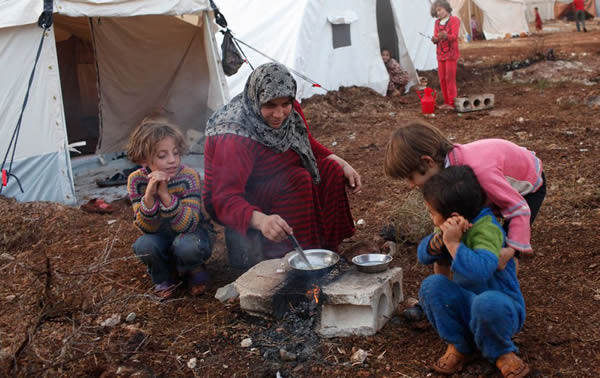Torah Sparks
Genesis 41:1 – 44:17
Dreams continue to play a key role in the story of Joseph. Our Torah reading opens with a description of Pharaoh dreaming. His two dreams are famous for their graphic imagery. Fat, healthy cows are devoured by scrawny ones, with no apparent effect upon the emaciated animals. Then an even more surreal dream follows. Healthy, ripe sheaves of grain are devoured by blasted, dessicated sheaves. Pharoah is shaken. He is also upset when the interpretations of his advisors do not satisfy him. It is only Joseph, raised from the jail’s cellar, who succeeds in unlocking the meaning of the dreams.
Many commentators have wondered why Pharaoh’s courtiers were unsuccessful in their interpretations. Joseph’s explanations do not seem so far-fetched. Was no one else able to guess the dreams’ meaning?
Perhaps a reason for this failure can be found in a unique element characterizing Pharaoh’s dreams. We can compare them to the other dreams we have already heard about in our Joseph story, as well as to dreams that have happened before. If we limit ourselves to the Joseph story dreams, we will see that, in all those dreams the person dreaming sees something happen to himself. Joseph dreams of his family bowing down to him. The baker and the butler dream of succeeding or failing to return to Pharaoh’s good graces. But Pharaoh’s dreams are structured differently. Nothing happens to Pharaoh, himself. The cows and the sheaves act upon themselves, not upon Pharoah. Yet, he is not absent from the dreams, either.
The first verse of our Torah portion begins: “And it was at the end of two-years, and Pharaoh was dreaming: Look! he is standing at the Nile.” (Gen. 41:1) Before we get to see the cows, we see Pharaoh standing at the banks of hte river. But he has no further role in the dreams. He does nothing and nothing happens to him. Indeed, when we recount the dreams, as I did before, we tend to focus exclusively on the animals and the stalks of grain. But, look! When Pharaoh retells his dreams to Joseph, he begins: “In my dream, there I was, standing on the banks of the river.” (v. 17) He makes a point of starting with this seemingly irrelevant detail. Apparently it made an impression upon him. He wanted to know why he was in the dream. What was his role?
And that may be what Joseph understood so well. Joseph’s interpretation was not preferred simply because he understood the symbolism of the seven fat cows and the seven thin ones. More to the point is Joseph’s opening statement: “The Almighty has shown to Pharaoh what God plans to do.” (v. 25) And he repeats this after explaining about the cows and sheaves: “What the Almighty is about to do is what God has shown to Pharaoh.” (v.28) Pharaoh has been put into the dream scene because Pharaoh is being told that it will be his responsibility to do something in response to God’s plan. The dream does not tell Pharaoh what will happen to him. It tells Pharaoh that he will witness a process. Why is he chosen to witness that process?
That is Pharaoh’s insoluble problem. Why should Pharaoh have to wonder about some uncontrollable “acts of God”? His courtiers can’t help him with this. From their perspective it should be of no concern to him whether his subjects eat or starve, live or die. But Pharaoh does not feel that this is correct. Joseph unlocks for Pharaoh the inchoate impulses of generosity and leadership that Pharaoh sensed within himself but that he could not articulate. That is why Pharaoh practically jumps for joy when he hears Joseph’s words. It is not only Joseph who has been freed from prison. So has Pharaoh.
This Pharaoh can be seen as a leader of courage and generosity, capable of embracing challenging and unconventional ideas that will offer a response to a crisis, ideas that are not founded on fear and restrictions, that do not pander to hatred and do not refuse to help displaced populations who come seeking food and shelter in their time of need. What a contrast to the next Pharaoh who begins the terrible story of Israel’s enslavement! And what a contrast to some of the figures who would like us to take them seriously as potential leaders of our own world!
Shabbat Shalom Happy Hanukah! Have a good New Month!
Rabbi David Greenstein
![]()
Subscribe to Rabbi Greenstein’s weekly d’var Torah
image in the public domain courtesy Freedom House
- Toby Stein: In Memoriam - Thu, Feb 8, 2024
- Faithfulness and Hope: Parashat Sh’lach - Thu, Jun 23, 2022
- Past Their Prime: Parashat B’ha`a lot’kha - Thu, Jun 16, 2022

